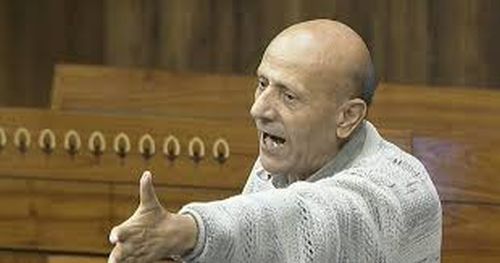Srinagar: The High Court of J&K and Ladakh on Thursday dismissed writ petitions by Fair Price Shop dealers claiming that a 2023 government order, SO 41, deprived them of their certain vested employment rights.
Rejecting the string of petitions, Chief Justice Arun Palli and Justice Rajnesh Oswal held that the main object of SO 41 is to ensure the proper supplies of essential commodities to the public at large. “If achieving this objective is incidentally leading to generation of employment opportunities, the petitioners cannot raise the plea of generation of employment to defeat the main objective of SO 41.”
The bench said “the proviso appended to Clause 20(2) of SO 41 vests the power with the Director FSC&CA to adjust minimum up to 50 ration cards or 200 souls on either side, if situation warrants. Thus, the number of ration cards with the particular fair price shop dealer may touch 250 ration cards, but of course in case of contingencies only”.
It held that the petitioners cannot throw a challenge to Clause 20 (2) of SO 41 on the ground of violation of their contractual/fundamental rights. The petitioners have only been issued licenses by the respondent (government authorities) to ensure proper and smooth distribution of food grains among the public and there are no vested rights with the petitioners for a particular number of ration cards.
The bench noted that vide the communication dated 07.06.2023, a proposal has also been mooted to sell products other than the scheduled/essential commodities. Its purpose is to ensure the viability of the fair price shop system and the respondents have also enhanced the commission of the petitioners in terms of Clause 9(7) of the Order of 2015.
“Otherwise also, if the running of the fair price shop becomes unviable, it would prove counterproductive to the efforts of the government to achieve the target of the National Food Security Act, 2015 and the Order of 2015. The government has the expertise and the mechanism to ensure the achievement of objects of the Order of 2015 and in case of non-viability of fair price shops, the government can take remedial measures,” it said.
The petitioners pleaded that the SO 41 has the effect of reducing their business and renewal fee of ₹1,000 after every five years cannot be imposed on them.
The grievance of the petitioners was also that the order prescribes maximum age of a fair price shop dealer as 65 years, whereas no such restriction in respect of the age was earlier provided in any of the orders in respect of the allotment of fair price shops.
The petitioners held that the order has the propensity to reduce the ration tickets to 1,500 souls or 200 families in rural areas and not more than 2,000 souls or less than 300 families in urban areas. In terms order No. 127-FCS&CA of 2016 dated 04.08.2016, the minimum ration tickets were fixed as 250 with an upper limit of 499 ration tickets.
The petitioners also contended that SO 41 could not have been applied retrospectively as the petitioners have been deprived of their vested rights to have assured a number of ration tickets in terms of earlier order(s) issued from time to time.
The SO 41 they petitioned has the effect of snatching their livelihood as otherwise also the petitioners are earning meagre commission from the sale of food grains.
The SO 41 is coercive in nature and once the petitioners have been appointed as dealers prior to the issuance of SO 41, they cannot be forced to deposit ₹1,000 as license fee for issuance of license in terms of SO 41 dated 19.01.2023, they said.
The court held “the purpose of renewal of license is to ensure that the licensee performs satisfactorily, and adheres to the guidelines framed by the government to provide smooth supply of food grains to the ration card holders”.
“It said the validity of the license has been fixed for five years and a renewal fee of ₹1000 payable after five years in the UT of J&K cannot be termed as excessive, thereby over-burdening the petitioners financially.”
It noted that the distribution of food grains requires physical strength and under normal circumstances, when a person reaches 65 years of age, it becomes little difficult to perform activities that require much physical labour.
“A government employee also retires at the age of 60 years. SO 41 prescribing the maximum age of 65 years for a fair price shop dealer cannot be termed as unreasonable, particularly when the provision has been made in Clause 23 of SO 41 regarding transfer of license in favour of the dependent family member of fair price shop dealer who has attained the age of 65 years.”
The judges noted that they have no hesitation in observing that SO 41 is a complete code in itself. “It not only deals with the duties and responsibility of ration card holders but also rights and liabilities of the fair price shop dealer. Besides, it lays down the criteria for opening new fair price shops and for selection of dealers for running such shops.”







